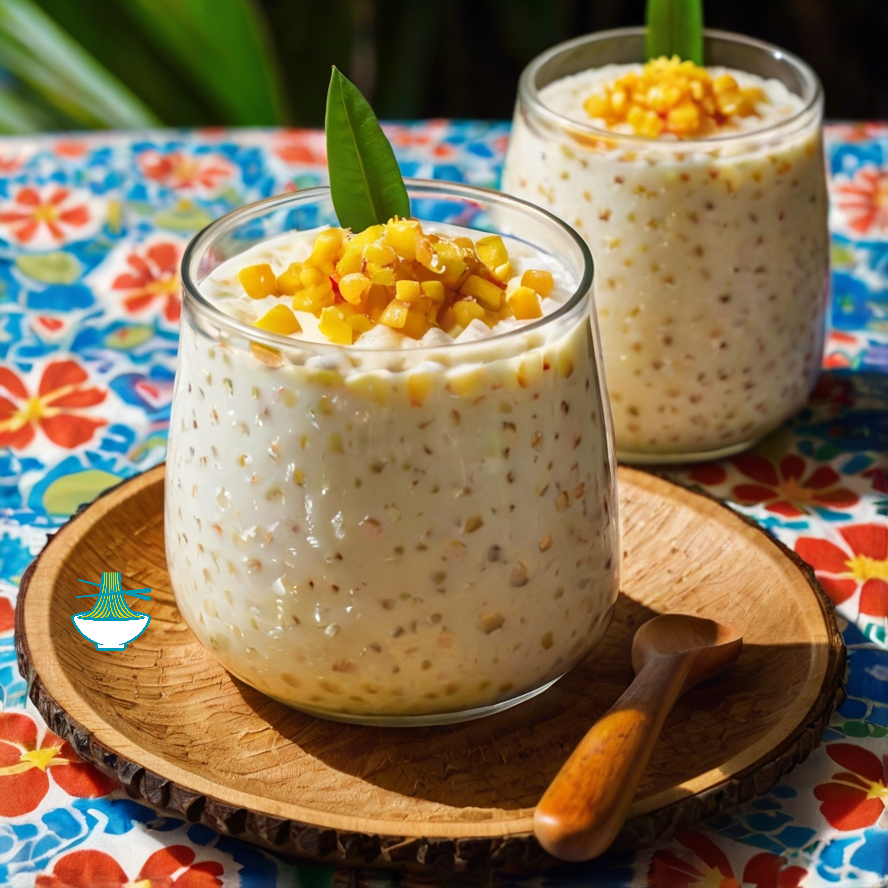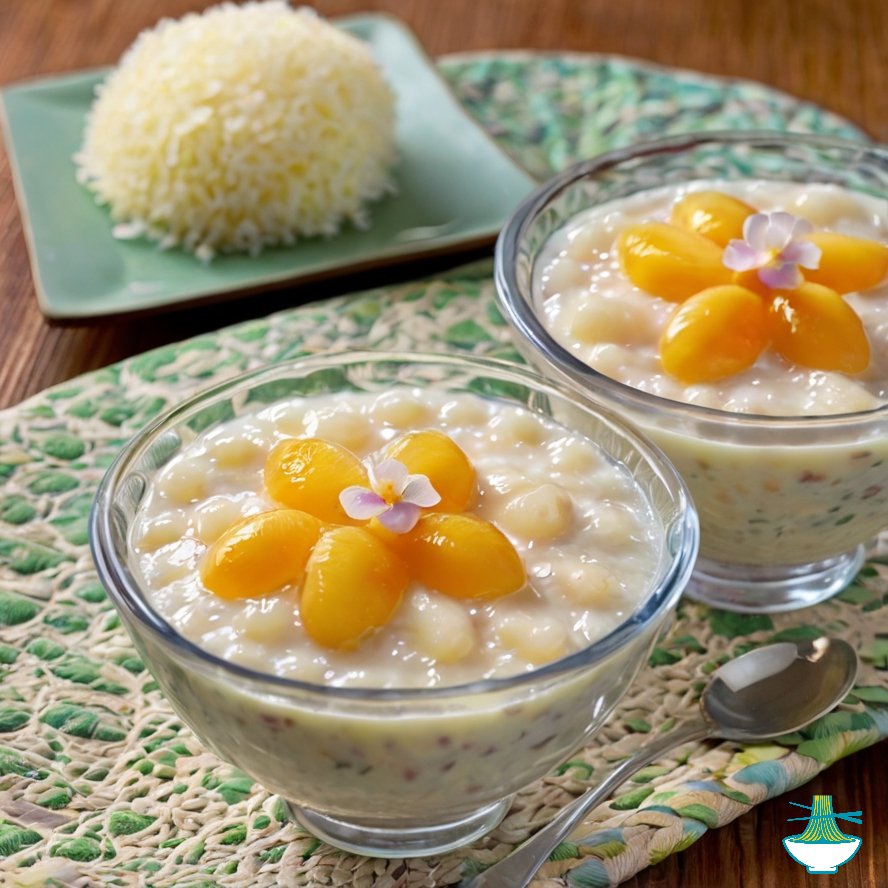Experience Tuvalu's Coconut Tapioca Pudding:chewy tapioca pearls in creamy coconut milk,sweetened perfectly.A beloved tropical dessert to enjoy warm or chilled.
Tapioca pudding has a rich history in Tuvalu, reflecting the island nation's cultural heritage and culinary traditions. Tapioca, derived from the cassava plant, has been a staple ingredient in Pacific Island cuisine for centuries. In Tuvalu, where coconut trees abound and dairy products are limited, coconut milk became a natural choice for creating a creamy pudding base. Over time, the recipe evolved to incorporate local ingredients and preferences, resulting in the beloved Coconut Tapioca Pudding enjoyed by generations of Tuvaluans. Today, it remains a cherished dessert, often served during festive occasions and family gatherings, showcasing the enduring connection between food, culture, and community in Tuvalu.
Ingredients:
- 1/2 cup tapioca pearls
- 1 can (13.5 oz) coconut milk
- 1/4 cup sugar or honey (adjust to taste)
- Pinch of salt
- Optional: Fresh fruit for garnish

Method:
1. Rinse tapioca pearls under cold water, then soak them in water for 30 minutes.
2. In a saucepan, combine soaked tapioca pearls, coconut milk, sugar (or honey), and a pinch of salt.
3. Bring the mixture to a gentle boil over medium heat, stirring constantly to prevent sticking.
4. Once boiling, reduce heat to low and simmer for 15-20 minutes, or until tapioca pearls are translucent and tender, and the mixture has thickened to desired consistency.
5. Remove from heat and let cool slightly.
6. Serve warm or chilled, garnished with fresh fruit if desired.
7. Enjoy your delicious Coconut Tapioca Pudding!
Nutrition value:
1. 1/2 cup tapioca pearls:
- Calories: Approximately 272 kcal
- Carbohydrates: Approximately 68 g
- Protein: Negligible
- Fat: Negligible
- Sodium: Negligible
- Cholesterol: Negligible
- Nutritional Benefits: Tapioca pearls are mainly composed of carbohydrates and provide energy. They are gluten-free and suitable for individuals with gluten intolerance. However, they lack significant amounts of vitamins and minerals.
2. 1 can (13.5 oz) coconut milk:
- Calories: Approximately 720 kcal
- Carbohydrates: Approximately 24 g
- Protein: Approximately 7 g
- Fat: Approximately 72 g
- Sodium: Approximately 45 mg
- Cholesterol: Negligible
- Vitamins and Minerals: Coconut milk is rich in medium-chain fatty acids, which are metabolized differently from other fats and may provide various health benefits. It also contains small amounts of vitamins C, E, and some B vitamins, as well as minerals like iron, calcium, and magnesium.
3. 1/4 cup sugar or honey (adjust to taste):
- Calories: Approximately 200-220 kcal (depending on the type and amount used)
- Carbohydrates: Approximately 50-60 g (depending on the type and amount used)
- Protein: Negligible
- Fat: Negligible
- Sodium: Negligible
- Cholesterol: Negligible
- Nutritional Benefits: Sugar and honey primarily provide sweetness to the dish. However, they offer little to no nutritional value beyond providing calories from carbohydrates.
4. Pinch of salt:
- Calories: Negligible
- Carbohydrates: Negligible
- Protein: Negligible
- Fat: Negligible
- Sodium: Negligible (depending on the amount used)
- Cholesterol: Negligible
- Nutritional Benefits: Salt enhances the flavor of the dish. However, excessive salt intake should be avoided due to its association with various health concerns, such as hypertension.
5. Optional: Fresh fruit for garnish:
- Nutritional content varies depending on the type of fruit used. Generally, fruits provide various vitamins, minerals, and antioxidants, depending on the type chosen. Common choices like berries may offer vitamin C and dietary fiber, while bananas may provide potassium and vitamin B6. Including fresh fruit adds flavor, texture, and nutritional value to the dish.


Comments